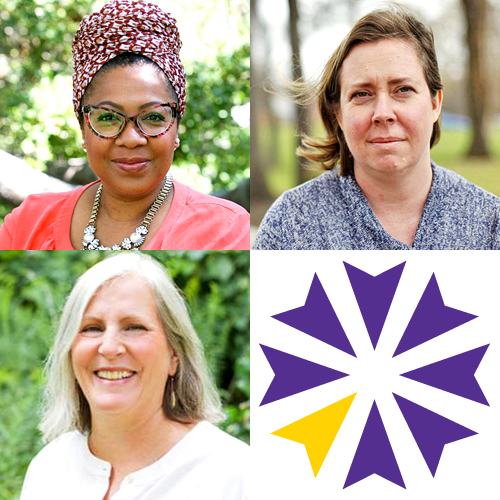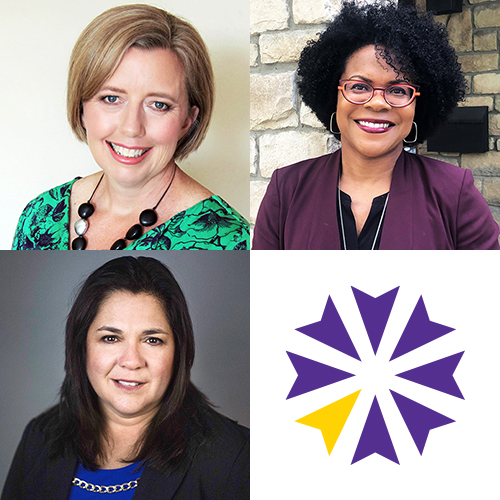 Counseling Skills Online Course(s) & Continuing Education
Counseling Skills Online Course(s) & Continuing Education
Access the latest clinical skills and research for Counseling Skills for IBCLC/Lactation Consultants professional training. These Counseling Skills online courses provide practice-changing skills and valuable perspectives from leading global experts. This Counseling Skills education has been accredited for a variety of CEUs / CERPs and can be accessed on-demand, at your own pace.
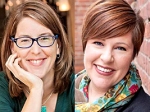
#thestruggleisreal: How to Build Understanding and Empathy with Millennial Families

Amber McCann is an international board certified lactation consultant (IBCLC) whose current interests involve connecting with new families through social media channels and teaching others in her profession to do the same. After maintaining a busy private practice in the Washington DC suburbs and working with an innovative model of care at the Breastfeeding Center of Pittsburgh, she now provides marketing and communications guidance for a number of birth and breastfeeding organizations. When she’s not furiously tweeting or watching terrible reality TV, you can find her eating her way through all of the fantastic restaurants in her new hometown of Pittsburgh and snuggling her three children.
Jeanette McCulloch, IBCLC, has been combining communications work and women’s health advocacy for more than 20 years. She is a co-founder of BirthSwell, which is improving infant and maternal health - and the way we talk about birth and breastfeeding - through strategic communications and social media. She is a board member of Citizens for Midwifery, and is active in local, statewide, and national birth and breastfeeding advocacy projects.
In this presentation, we will learn about the unique values, communication styles, learning preferences, and buying habits of Millennials. We’ll also address some common friction points between Millennials and other generations, with the goal of developing a self-awareness that can help us provide the best possible care.
We will also learn how to apply our knowledge of Millennial values and communications styles to understanding how we can best find Millennials as clients, teach in the way they best learn, and provide information and care in a way that reaches Millennials where they are at.
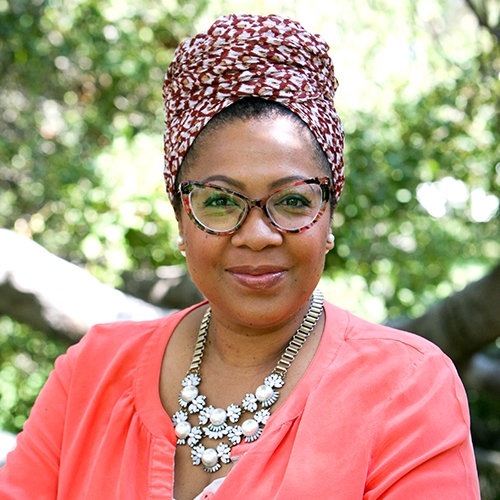
BreastSide Manner: A Patient-Centered Approach to Lactation Support

Nekisha Killings is an equity strategist, internationally board-certified lactation consultant, and maternal and child health advocate who speaks, teaches, and facilitates on topics related to equity and dismantling bias across various sectors.
When she is not home educating 4 future world changers, she acts as a Director of Equity, Inclusion and Belonging at Lactation Education Resources and consults organizations on creating and implementing strategies to better support marginalized communities.
Nekisha holds a Masters in Public Health and penned the chapter titled Cultural Humility in the latest Core Curriculum for Interdisciplinary Lactation Support text. Nekisha is on a mission to normalize brown breasts and nipples in health education, thereby better equipping healthcare providers to accurately assess and treat people of color.
Nekisha's work is rooted in a compassion and candor that could only have been cultivated in years of supporting new parents during their first days of parenthood. Nekisha is an active duty military spouse who has been awarded the Spouse of the Year designation for her volunteer efforts supporting families.
Topic: Breast Assessment and Non-White Skin Tones - [View Abstract]
Topic: BreastSide Manner: A Patient-Centered Approach to Lactation Support - [View Abstract]
Topic: Marching Orders: Developing Practical and Impactful Care Plans - [View Abstract]
Warm and empathic bedside manner is a lost art in provider-patient interactions. Be it time constraints, systemic limitations, lack of trust or training, the disconnect is apparent and the consequences are grave. In this talk, lactation support providers have an opportunity to learn how to be intentional in their approach to care in a way that honors the patient and their needs while also meeting them where they are. This talk will consider attitude, cultural, language, and other factors that might have traditionally impeded communication or relational connection in order to get to the heart of drawing lines of trust and respect between Patient and provider.
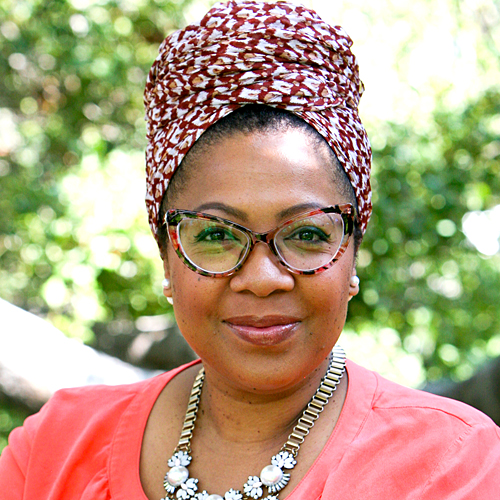
View Details / Enroll


Lesley Everest has been practising as a birth, postpartum, and end-of-life doula in Montreal over the last 26 years. She is the founder of MotherWit Doula Care and MotherWit Doula Training. Lesley's professional background in many forms of somatic/emotional support therapies and inter-spiritual ministry informs her work as a teacher of human resilience , as do the births and parenting of her own four kids, and her experience of healing from cancer. She has learned over the years that a good birth and early parenting experience is less about goals being met and more about feeling safe and respected. Lesley believes that the journey into family-hood matters for all members, serving as a transformational event that has the power to shape early parenting and the next generations. Lesley's diplomatic and collaborative nature has made her a sought after speaker in the North American birth and parenting conference circuits, as well as a facilitator of workshops geared towards soft skills building for medical care providers. Lesley is resourced by long walks in nature, late night dancing with friends to ‘80’s music, and visits to the spa.
The CALM Communication workshop is designed to nourish practitioner skills that can support the nervous system co-regulation of the breast/chestfeeding parent/baby dyad, thereby enhancing the efficacy of information exchange at a vulnerable time.
When a parent is experiencing breast or chestfeeding difficulties, it can be emotionally distressing. This distress can be exacerbated by a history of trauma, a challenging birth/NICU experience, or a perinatal mood or anxiety disorder. Babies and their parent/s are learning contingent communication with each other, often in spite of uncomfortable challenges.
In the time lactation professionals spend with a new family, they have the opportunity to provide a stabilizing presence that may create reparative experiences for some of the stress-based breaches in the vital attachment mechanisms babies need to develop with their parent/s for optimal, life long health.
The art of information sharing is not only about the skilled assessments professionals make and the work done with infant feeding challenges, but also about how to create safe space for a client’s/patient’s truth to unfold in a supportive way.

View Details / Enroll
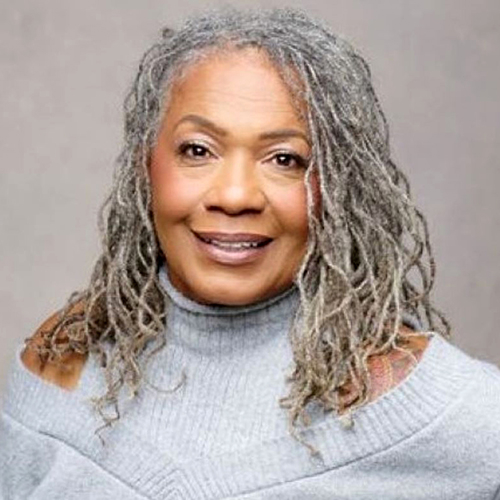

Tanya Singleton is a registered nurse with over 40 years of experience in Maternal-Child nursing as a Labor and Delivery nurse, certified in High-Risk Perinatal nursing, an IBCLC lactation consultant and Lamaze childbirth educator. She retired as United States Army Nurse Corp officer in 2003 and began working in private practice as a lactation consultant and childbirth educator. She has run several community non-profits in the Fredericksburg, Virginia area that dealt with issues related to women's and children's health promotion and illness prevention. She is immediate past Chair of the State of Virginia Breastfeeding Advisory Committee, and is currently Chair of Postpartum Support Virginia Board of Directors.
Tanya is committed to quality education and lifelong learning, and has taught maternal-child and pediatric nursing to students in the Rappahannock Region of Virginia, sharing her various clinical anecdotes in classroom and in labs. She is an advocate for equity in maternal healthcare for women of color and early detection of perinatal mood disorders. She is owner and proprietor of The Baby Whisperer, providing in-home support in childbirth education, breastfeeding and parenting.
She is the mother of a blended family of five adult children and Nana to four.
Topic: Establishing Breastfeeding and Bonding in the Post COVID Hospital Setting - [View Abstract]
Topic: How to be Part of the Solution: The Effects of Intergenerational Trauma on Perinatal Persons of Color - [View Abstract]
Effective communication in support of breastfeeding families requires a multi-faceted approach and must circle back to evaluate its impact on the mother, her infant, and her definition of family. All healthcare providers in this loop must recognize the importance of delivering compassionate, culturally appropriate communication which includes active listening, timely and sensitive non-verbal and verbal cueing. Written communication should be in a format that is appropriately accessible to the mother and significant others.

View Details / Enroll
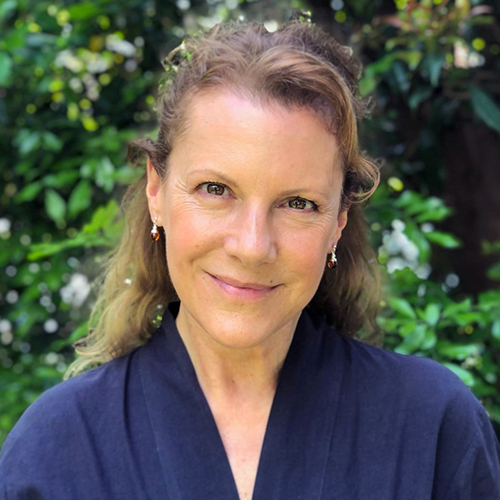

With over 25 years’ experience as a relationship counsellor, parents’ group facilitator, mental health educator, partner and mum, Elly Taylor has become an internationally known parenthood preparation and perinatal relationship expert and the award-winning author of Becoming Us. Elly’s passion is preparing parents for a happy and healthy family—at any stage in their parenthood journey, and especially in a challenging world. Her Becoming Us approach includes fathers and partners in all aspects of pregnancy, birth and beyond, harnesses the attachment bond between couples to stabilise them through the life changes and challenges of parenthood and links both parents into community services to support the mental, emotional and relational wellbeing of the whole family.
Elly has served as an advisor for numerous university research projects and her ground-breaking Becoming Us developmental framework has now become a comprehensive multi-disciplinary education and professional training and courses for parents. In a full circle moment, Elly recently trained midwives, allied health and therapy professionals in her local community and now Becoming Us Nest Building Sessions are preparing expectant parents in the hospitals where her children were born. Elly lives in Sydney, Australia with her firefighter husband, their three kidults and an abundance of pets.
Topic: Communication and Conflict - How Connection Supports Both - [View Abstract]
Topic: Including Fathers and Partners to Support Perinatal Mental Health and Marriages - [View Abstract]
Communication is the lifeblood of relationships but much more challenging than most people realise, especially during the perinatal period. The closer the relationship, the more challenging effective communication can be. Things just seem to get in the way. Feelings are hard to talk about. Effective, meaningful communication is much more than just the exchange of information. What’s your intention? What is the impact of the words you choose? What do the other person’s words, intention and impact mean for you and your relationship with them?
Communication is both an art and a science. It starts with connection. Connection facilitates communication: connection with yourself gives you the awareness, skills and confidence to say what you want to say, how you want to say it. Connection also helps you to deal with what your words evoke inside the person you’re talking with.
In this presentation you’ll discover why connected communication is so important, the barriers to achieving it, and the benefits, for yourself and others, of communication as a pathway to strengthening and deepening relationships, creating stability through change, and finding meaning and direction in the sometimes overwhelming and confusing landscape of new parenthood.

View Details / Enroll
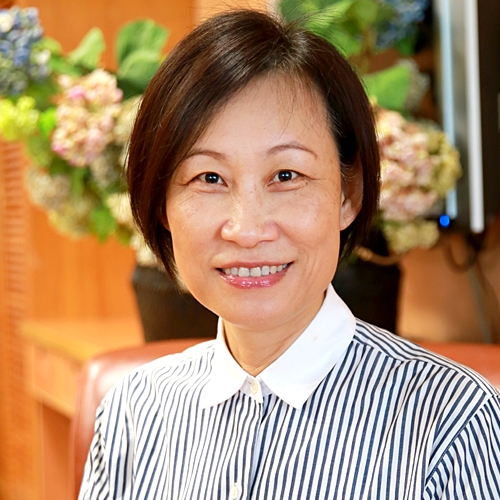
Communications/Connection and Conflict Resolution Within the Extended Family

I am the mother of three breastfed children. Certified as an IBCLC in 2007, the next year, in 2008, setup the first IBCLC clinic in the medical center in Taiwan. As the President of the Chinese Lactation Consultant Association from 2015 till now. I have been teaching in the university for 30 years and as a part-time associate professor in the Department of Midwife & Women Health, National Taipei University of Nursing and Health Science, Taiwan now. After I retired from the university, I fund and as the CEO of WELL International Co., aims to promote the three-stages certification of profession lactation support competence.
Topic: Communications/Connection and Conflict Resolution Within the Extended Family - [View Abstract]
One of the biggest differences between Eastern culture and Western culture the tight connection of family. In Eastern culture, there is a traditional culture for postpartum practice called “doing the month (DTM) ”. Including dietary taboos, lifestyle restriction, such as No hair washing, no bathing, and also parental self-regulation. This kind of confinement is very difficult for the young generation, and it causes a lot of conflicts within family. Based on affection exchange theory(AFE), by using active listening skills to accept the expressions of both parties. To praise ANY behavior whichever is nicer to the other. To facilitate the mutual experiences on positive feelings in the same living target, connecting and caring all people’s needs on-site. Acting is considered as a connector, to emphasize and to enlarge the two parties' commonality. Hence, the consensus building and the making the feasible strategies for a change are necessary.

View Details / Enroll

Dealing With the Tough Ones: Counseling in Difficult Situations

Cathy Carothers is co-director of Every Mother, a non-profit organization providing lactation training for health professionals. An International Board Certified Lactation Consultant since 1996, she has provided more than 600 training events and conference presentations in every U.S. state/territory and several countries. She is past president of the International Lactation Consultant Association (ILCA), a fellow of ILCA, and past chair of the U.S. Breastfeeding Committee. She chairs the design team for the equity initiative in the lactation consultant profession, and chairs the Monetary Investment for Lactation Consultant Certification (MILCC), which works to reduce financial barriers to the IBCLC exam. She has directed several national breastfeeding promotion and support initiatives for the U.S. federal government, including the national USDA WIC peer counseling program, and national workplace support initiatives through the U.S. Department of Health and Human Services. She was honored with the 2014 National Leadership Award from the National WIC Association.
Topic: Dealing With the Tough Ones: Counseling in Difficult Situations - [View Abstract]
Topic: Making it Work: Supporting Nursing Moms at Work - [View Abstract]
Do you ever find yourself wishing you had just the right words in a difficult counseling situation? When time is limited and the pressure is on, it can be challenging to use our best counseling skills when assisting mothers with breastfeeding...especially when clients are difficult or special circumstances exist. This session will tackle some of the most common challenging situations, including interfering grandmothers, apathetic dads, resistant moms, and colleagues who do not support you. The session will also address strategies for addressing clients who do not speak your language and ways to help women feel empowered and confident they can deal with breastfeeding concerns.
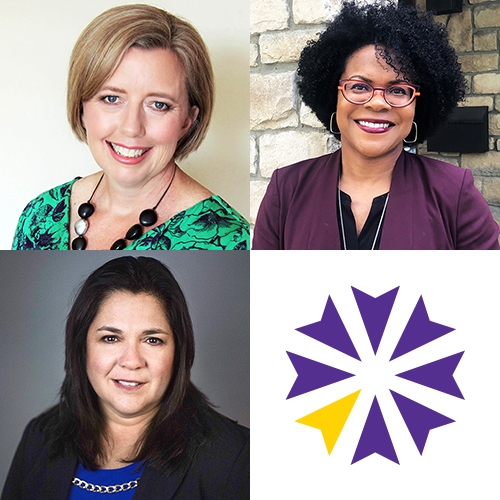

Annette Leary is a registered nurse with over 33 years of experience working in Maternal Child Health. She became an IBCLC In 1995. She works as a Maternal Educator in a large tertiary care hospital (14,000 deliveries a year) that is Magnet designated, JCAHO certified, and BFHI awarded. Her responsibilities include providing outpatient lactation virtual and in-person support, staff education, and inpatient consultations. She began her Upledger Craniosacral training in 2015, taking advanced maternal and pediatric specialty classes. Her most special efforts to date include her marriage of over 33 years, four adult children and being nana to two grandchildren.
Naomi Hull as a Registered Nurse, an International Board-Certified Lactation Consultant (IBCLC) and has a Master of Public Health (Nutrition). Naomi is mum to two teenage young adults, a Rhodesian Ridgeback and three chickens. Since 2006 Naomi has been a volunteer Breastfeeding Counsellor (Cert IV Breastfeeding Education) with the Australian Breastfeeding Association, and she qualified as an IBCLC in 2010 and has worked in a small Private Practice in Brisbane. While completing her MPH at the University of Queensland (UQ) she focused her dissertation on a qualitative review of stakeholder’s perceptions of the implementation of the Australian National Breastfeeding Strategy (2010-2015). Since then she has gone on to lead and coordinate a national team in the assessment of Australian breastfeeding policies and programs using the World Breastfeeding Trends Initiative (WBTi) Assessment Tool. Naomi is the Senior Manager for Breastfeeding Information and Research at the Australian Breastfeeding Association, where she is responsible for the provision of up to date, evidence-based information for the general community and health professionals.
Maxine Scringer-Wilkes graduated with a nursing degree followed later on by her Master of Nursing in 2017 both from the University of Calgary. Maxine was a public health nurse in Calgary for 13 years, where providing face to face contacts with new families soon after discharge is a standard of care. Most families named feeding challenges as their biggest concern. In turn, Maxine developed a passion for lactation support, worked towards and attained the International Board-Certified Lactation Consultant designation, in order to assist families to reach their feeding goals.
In 2016, Maxine made the transition from public health to acute care where she currently works in all areas of a large Children’s hospital to support dyads with a myriad of lactation concerns but is primarily in the NICU. Maxine’s responsibilities includes orienting new staff to teaching a provincial lactation education within a team. Maxine is passionate about sharing knowledge with aspiring LCs and is a mentor to many. Maxine participates on numerous committees to update lactation and feeding policies, procedures and documents. Furthermore, she volunteers on provincial and national breastfeeding committees.
The past decade has seen a marked increase in telehealth. Lactation support in a virtual format had been slowly increasing virtual access to care prior to COVID-19. As the pandemic started, in a matter of weeks, it became necessary to embark on virtual care for the majority of lactation support and care providers were forced to adapt to a new method of care. This sudden change has highlighted both the benefits and drawbacks of virtual lactation support. The learning curve continues and this panel has been designed to explore the lessons, the triumphs, the challenges, and the future needs for virtual lactation care.
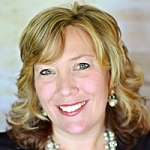
Enhanced Counseling Skills for the Lactation Educator

Christy Jo has over 25 years of teaching experience. She is passionate about teaching in ways that simplify learning. She has been awarded the United States Presidential Volunteer Award for her community service, the Phyllis Klaus Founder's Award for her contribution to the Mother/Baby bond and the Above and Beyond Award for innovative projects that exemplify the mission of Public Health. She has also been named Lactation Educator Faculty of the Year from Childbirth and Postpartum Professionals Association and earned their Visionary Award in 2015. Christy Jo is the author of Mommy Feeds Baby and co-author of Making Milk. She created the Grow Our Own Lactation Consultant/IBCLC Prep Course which has been used to train hundreds of students to become Lactation Consultants. She currently resides in California with her husband and three children. She continues to serve her community as a birth doula, Private Practice IBCLC, Health Educator for Public Health, and faculty for the CAPPA CLE© and Childbirth Educator Programs.
Topic: Enhanced Counseling Skills for the Lactation Educator - [View Abstract]
Topic: Expanding Our Audience to Gain Greater Appreciation and Acceptance of Breastfeeding - [View Abstract]
Topic: Sharing Your Wisdom: From Abstract Idea to Awesome Prenatal Breastfeeding Class - [View Abstract]
Topic: The Art of Communication: Simplifying Birth and Breastfeeding - [View Abstract]
Functioning in the role of a lactation educator, one must be equipped with the tools for effective communication.
This topic explores the many ways to communicate successfully with prenatal and postpartum individuals. The talk highlights open-ended questions, affirmations, education and the anticipated results of three-step counseling. The presentation also explains how to recognize “change talk” and what words may signal an “open door” to further opportunities for sharing. Circle Charts and Participant Centered Education are discussed in detail. This talks prepares the counselor to share information in an open-minded, non-judgmental way that results in profitable teaching and learning for the counselor and perinatal person. These skills are presented in a fun, unique way and provide more tools for the lactation educator’s tool box.
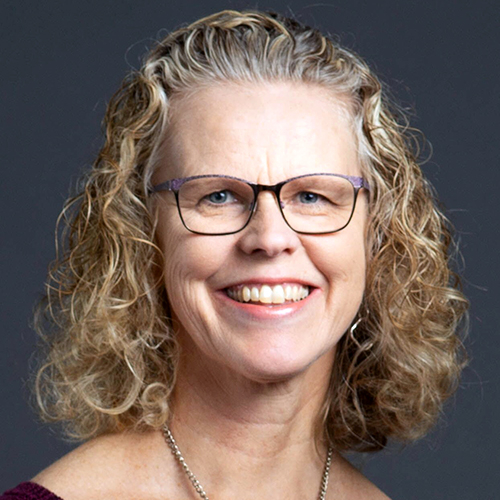
Informed Decision Making: Gaining Skills & Confidence with Tricky Conversations

For over 25 years Sonya Boersma has supported best practice, working with mothers and babies, as well as professionals. She delivers a calm and informative consult to a diversity of clients and situations. For her it's an honour to work with new, new-again, or soon-to-be parents, tailoring care to each.
Sonya also has a broad range of experiences supporting health care professionals to provide infant feeding evidence-based care. She has been instrumental in developing resources regionally and provincially. As a provincial Health Promotion Consultant, Sonya assisted health care organizations like hospitals to progress in implementing the WHO's Baby-Friendly Initiative. She was the coordinator of provincial breastfeeding protocols, including Informed Decision Making: Infant Feeding and facilitated IDM and other workshops around the province for a variety of health care professionals.
As an IBCLC and Registered Nurse in various roles such as public health, northern nursing in Yukon Territory, Canada, as a birth doula, and as an independent Lactation Consultant, she has been fortunate to work with parents in the whole childbirth continuum.
In her spare time, she's likely outside hiking, cycling, or cross-country skiing or being with family.
Topic: Informed Decision Making: Gaining Skills & Confidence with Tricky Conversations - [View Abstract]
It can be tricky when as health professionals, we want to build trust and support our client, and at the same time, presenting evidence-based information on infant feeding can be uncomfortable.
The purpose of this presentation is to enhance awareness, augment skills and comfort in having informed decision making (IDM) conversations, so participants can more confidently engage with their clients.
In this presentation we will review scenarios where IDM conversations are needed, explore language to begin, and discuss tips on engaging your client. We will also refresh knowledge of the risks of not breastfeeding/chestfeeding, as well as differences between direct breastfeeding versus feeding expressed breast milk. Further, we will discuss communication strategies using practical examples and provide participants with supporting resources including sample videos so that participants may confidently have conversations with clients about infant feeding that generate informed decision making.
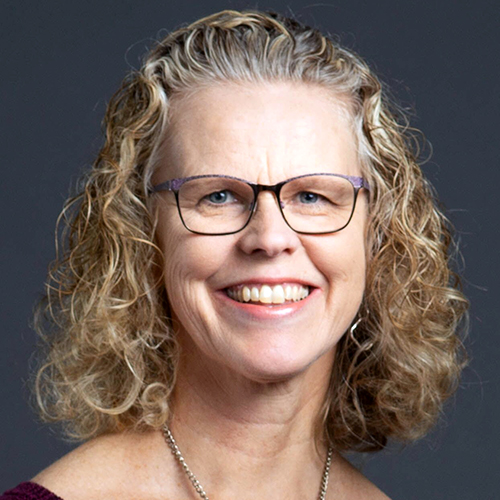
View Details / Enroll




